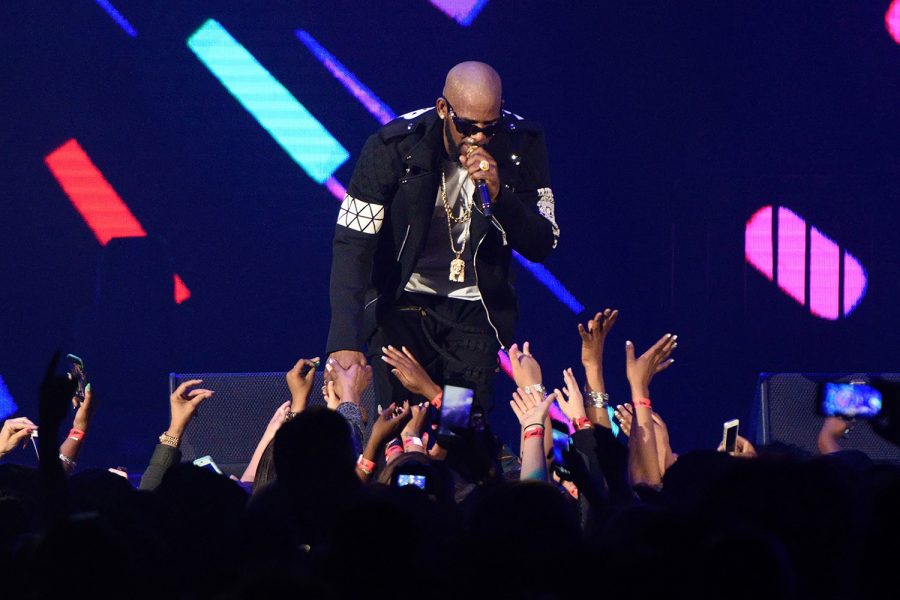Brings Plenty: Spotify removing controversial artists is important
Spotify removing artists who have been accused of sexual assault or are associated with white supremacy is an important step and should be encouraged.
R. Kelly performs during The Buffet Tour on May 7, 2016 at Allstate Arena in Chicago, Illinois. (Daniel Boczarski/Getty Images/TNS)
April 30, 2019
After 21 women came forward with sexual-assault allegations, Spotify decided to remove all of Blood on the Dance Floor’s music from its streaming platform. The music-streaming service said it was because of “hateful content” and that such content in the band’s music violated Spotify’s streaming regulations and policies.
This isn’t the first time something like this has happened with a controversial artist. R. Kelly and XXXtentacion had their music removed from Spotify for a short time as well. In 2018, Spotify introduced a new set of policies that removed music by R. Kelly and XXXtentacion because of the pending criminal allegations the artists faced. However, Spotify quickly repealed these new policies and put their music back on the platform. This created a great deal of controversy, but overall, it sets a respectable standard.
Now, Spotify has taken steps toward removing Blood on the Dance Floor because of lyrics that often boasted about committing violent acts against women or performing sexual acts with them. Spotify also made steps to remove more than 37 white-supremacist bands back in 2017. These bands had ties to neo-Nazis and white supremacy, and their lyrics reflected these beliefs, which violated Spotify’s policies about lyrical content. “Illegal content or material that favors hatred or incites violence against race, religion, sexuality or the like is not tolerated by us,” a Spotify spokesperson said in a 2017 Vox article.
Related: Hegde: Music and its controversial creators
I believe Spotify taking steps to remove these artists from such a well-known and popular platform is incredibly important. This not only punishes the actual artist, but it also shows the music industry that such behavior shouldn’t be tolerated. If Spotify did keep such hateful music on its platform, it would indirectly support the message the artist conveys. Sexual assault and white supremacy should never be enforced or given any kind of platform. Having these artists’ music removed from Spotify also affects the artists’ revenue, as they receive around $7,000 per 1 million streams. While this might not seem like much compared to what most musicians get paid by their record labels, this is still money lost. Removing one avenue of financial gain is one way in which Spotify is also punishing these artists for their behavior.
This is also a great tactic on Spotify’s end, as it shows their support for the victims of this kind of behavior. By removing such content, Spotify is demonstrating that it supports survivors of sexual assault. It also says that the company shows support toward underrepresented groups that the bands degraded in their songs.
While we can’t completely eliminate sexual assault and white supremacy from the real world, we can take the necessary steps possible to prevent those assailants from having a platform. I agree with Spotify’s efforts to remove artists like this, as it aids in taking their voices and power away. It also shows support for those affected by the hatred and destructive behavior these artists promote.
Standards, such as those Spotify leads in establishing, pave the way for a more supportive future for minorities and sexual-assault survivors.






